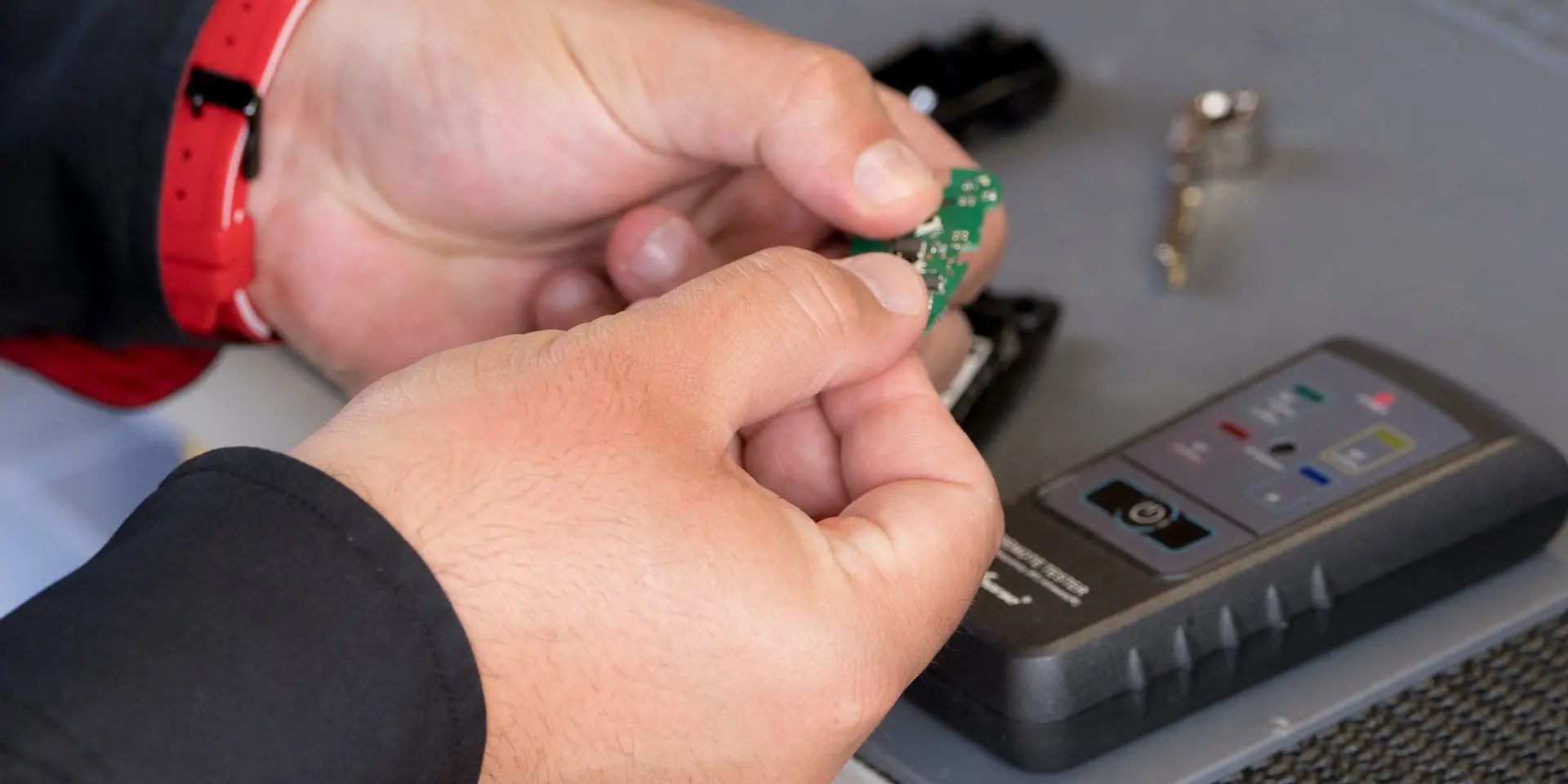thekeylab8153
About thekeylab8153
Car Key Repairs: A Comprehensive Guide

Car keys have evolved tremendously over the years, transitioning from simple mechanical designs to sophisticated electronic devices. Whether it’s a traditional metal key, a transponder key, or a key fob, encountering issues with car keys can be a common yet frustrating experience for vehicle owners. This article delves into the different types of car keys, common problems faced, repair options, and essential tips for maintaining your car key to ensure its longevity and functionality.
Types of Car Keys
Understanding the different types of car keys available can help anticipate potential issues and repairs. Here’s a breakdown of typical car key types:

| Type | Description |
|---|---|
| Metal Key | A traditional key made of a solid piece of metal to open physical locks. |
| Transponder Key | Contains a chip that communicates with the car’s ignition system to start the engine. |
| Key Fob | A remote control that allows keyless entry and may include a panic button, trunk release, etc. |
| Smart Key | A more advanced key fob that enables push-to-start functionality without inserting the Keylab key. |
Key Features of Each Type:
- Metal Key: Simple and cost-effective but less secure.
- Transponder Key: Adds a layer of security but can be costly if lost.
- Key Fob: Offers convenience but may require battery replacement.
- Smart Key: High security and convenience but can be expensive to replace.
Common Car Key Problems
Car key malfunctions can arise from various factors. Identifying the issue is the first step towards finding a solution. Below are some of the most common problems associated with car keys:
- Broken Key: Can occur from excessive force or wear and tear.
- Worn Out Key: Over time, metal keys can become worn and might not turn in the ignition.
- Transponder Chip Failure: The chip inside a transponder key can fail, preventing recognition by the vehicle.
- Battery Issues: Key fobs require batteries, which may die suddenly or slowly lose power.
- Damage from Water or Other Elements: Exposure to water can damage electronic components in the key fob.
Repair Options
Once you identify the underlying issue with your car key, you can choose from several repair options suitable for your needs.
1. DIY Repairs
If you’re handy and comfortable with basic repairs, you might consider attempting some DIY fixes. Here are a few suggestions:
- Replacing Key Fob Batteries: For fobs that require batteries, a quick replacement can often solve functionality issues. Consult the car manual for the specific battery type and how to access it.
- Smoothing Out a Worn Metal Key: If the notches of your metal key are worn down, a simple file or grinder can be used to reshape it; however, this requires precision and care.
2. Professional Repairs
When DIY methods seem daunting or if they don’t resolve the issue, turning to a professional is wise. Options include:
- Locksmith Services: A professional locksmith can usually handle most key issues, including cutting new keys or reprogramming transponder keys.
- Dealership Services: If your vehicle requires specific programming, visiting the dealership is often the safest option, especially for smart keys.
3. Replacement
When repairs are not feasible, consider replacing the key. This option can be more costly but ensures you have a fully functional key. Costs may vary depending on the type of key:
| Key Type | Estimated Cost |
|---|---|
| Metal Key | £5 – £30 |
| Transponder Key | £50 – £150 |
| Key Fob | £50 – £300 |
| Smart Key | £100 – £400 |
Preventive Maintenance Tips
Preventing key damage or malfunctions can save time and money. Here are several tips for maintaining your car key:
- Avoid Excessive Force: Don’t force the key into the ignition; if it doesn’t turn, check for debris or damage.
- Keep It Dry: Protect your key fob or smart key from water exposure by storing it in a dry location.
- Replace Batteries Regularly: For key fobs, replace the battery every 1-2 years to avoid sudden failures.
- Store Keys Safely: Utilize a designated place for your car keys to prevent misplacement or damage.
- Use Key Covers: Key covers protect keys from scratches and other damage.
FAQs
Q1: Can I get a replacement key if I lost my car key?
A1: Yes, you can typically get a replacement key from a locksmith or your vehicle’s dealership. Having your vehicle identification number (VIN) may be required.
Q2: How long does it take to get a transponder key programmed?
A2: Programming a transponder key usually takes between 15-30 minutes, especially when performed by a professional locksmith or dealership.
Q3: Are there ways to prevent losing my keys?
A3: Consider using a keychain tracker, designating a specific place for your keys at home, and establishing a routine check before leaving a location.
Q4: What should I do if my key fob stops working suddenly?
A4: First, check the battery and replace it if necessary. If it still doesn’t work, consult a professional for further inspection.
Car key repairs can be a straightforward process if you understand the type of key you have and the problems you may encounter. Regular maintenance, awareness of potential issues, and knowing when to seek professional help can go a long way in extending the life of your car key. Whether you choose to tackle repairs yourself or enlist the help of a professional, being informed is key to keeping your vehicle secure and accessible.
No listing found.